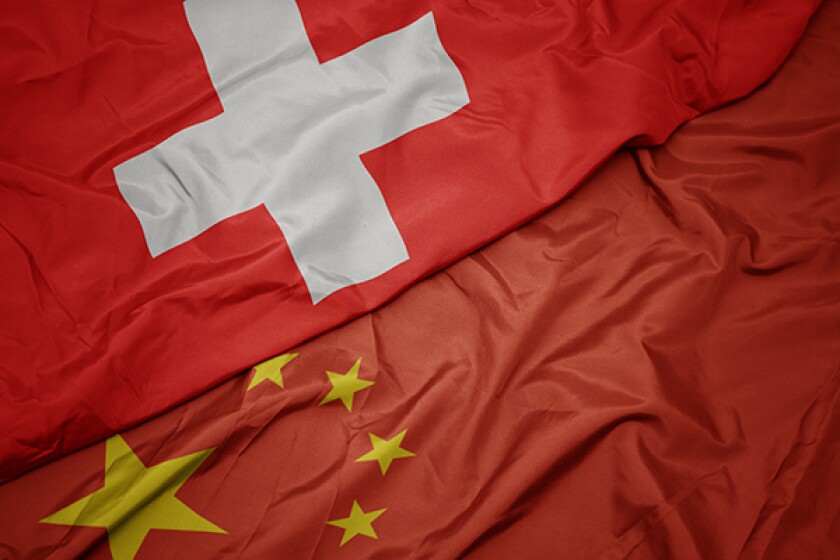Switzerland is considered one of the leading places for conducting international arbitrations. Parties in international business transactions regularly opt to have possible disputes adjudicated by an arbitral tribunal in Switzerland and also frequently subject their transaction documents to Swiss substantive law. The Swiss Federal Tribunal, acting as highest review court, is known for its arbitration-friendly jurisprudence, only rarely overturning awards handed down by arbitral tribunals.
To a considerable extent, the Federal Tribunal's jurisprudence relied on principles developed by its practice during the previous decades. In 2020, the Swiss parliament adopted amendments to the 12th chapter of the Swiss Private International Law Act (PILA), which contains the Swiss international arbitration law. These amendments became effective as of January 1 2021 and incorporated core elements of the Federal Tribunal's case law into statutory law.
The key aspects of the amended PILA pertained to certain clarifications as to the scope of its application when a party to the arbitration agreement did not have its domicile in Switzerland at the time of conclusion of the arbitration agreement. The new provisions also state that the PILA applies mutatis mutandis to arbitration clauses contained in unilateral instruments, such as by-laws, wills or trust deeds.
|
|
Finally, the instrument of revision, as previously acknowledged in the Federal Tribunal's case law, was formally introduced into the international arbitration chapter of the PILA |
|
|
Also, some clarifications were made with regard to the appointment and replacement of arbitrators. The law stipulates (what was previously a matter of case law) that a person who is proposed as an arbitrator shall immediately disclose the existence of any circumstances that may give rise to justifiable doubts as to his or her independence or impartiality. In addition, it states that this duty shall continue throughout the proceedings, an aspect that played a role in the matter of Sun Yang's case discussed below.
Furthermore, the new law contains a provision allowing foreign arbitral tribunals or its parties to seek assistance from a Swiss court to enforce interim measures or to take evidence in Switzerland. Also, it is now possible to file appeals to the Federal Tribunal against arbitral awards in English. Finally, the instrument of revision, as previously acknowledged in the Federal Tribunal's case law, was formally introduced into the international arbitration chapter of the PILA.
The authors take a recent Federal Tribunal decision concerning the Chinese elite swimmer, Sun Yang (Federal Tribunal decision 4A_318/2020 of December 22, 2020), to discuss the Federal Tribunal practice in international arbitration as well as the revised PILA provision allowing for revision requests (Article 190a PILA). In the aforementioned case, the Federal Tribunal upheld Sun Yang's request for revision of the arbitral award and thereby – de facto – gave effect to the revised PILA before its entering into force.
The case before the Federal Tribunal
It was the fifth time that the Federal Tribunal has had to deal with aspects of the arbitration proceedings involving Sun Yang. In the case at hand, Sun Yang had lodged a revision against an earlier arbitral award against him whereby the World Anti-Doping Association (WADA) had issued an eight-year ban against the athlete, which would have effectively ended the swimmer's career.
Facts of the case
An English summary of the case can be found at swissarbitrationdecisions.com. In short, the following transpired:
On the evening of September 4 2018, Sun Yang, the Chinese Olympic medal winner and multiple swimming world champion was subject to an unannounced (out-of-competition) doping control ordered by FINA, the international swimming federation (an association based in Lausanne, Switzerland). Obtaining the test samples was delegated to the International Doping Tests and Management (IDTM), acting as sample collection authority.
On the evening, between 10.00 and 11.00pm, the delegates of the IDTM rang at the private home of Sun Yang to collect blood and urine samples from the swimmer. The group was made up of (i) the office in charge of the doping control (DCO), (ii) an assistant in charge of blood collection (BCA), and (iii) another doping control assistant (DCA). Based on the facts of the contested award brought before the Federal Tribunal, by which it was bound, the following then transpired.
The DCO, who was known to Sun Yang from earlier controls, presented him with a copy of her identification card issued by IDTM and a FINA document for the IDTM titled 'Letter of Authority', appointing and authorising it by FINA to collect random urine and blood samples from athletes. The DCA presented Sun Yang with his national ID card and the BCA submitted a copy of her junior nurses' certificate.
After having signed the doping control form, Sun Yang cooperated in providing two blood samples, which were sealed in glass containers and stored in a storage box. Before providing the urine sample, Sun Yang noted that the DCA was taking photographs of him. Finding this behaviour inappropriate, he requested a re-examination of the documents presented by the sample collection personnel, in particular the references of the DCA. Sun Yang felt that the information provided by the DCA was insufficient. At the initiative of the DCO, or at least with her agreement, the DCA, whose sole task was to supervise the urine sample collection process, was excluded from the control mission. However, as the DCA was the only male member of the collection team, no urine samples could be collected.
The whole incident disquieted Sun Yang and he consulted with his personal physician and the head of the Chinese swimming team over the phone, who discussed the accreditations of the sample collection personnel and the letter of authority with the DCO. They informed the athlete and the DCO that the documents presented did not meet the necessary requirements, wherefore the blood samples collected could not be taken by the DCO. Consequently, Sun Yang wanted the samples returned to him. The DCO however warned the swimmer that this could possibly be considered as a failure to comply with doping control with potentially serious consequences.
After intense discussions and under pressure from the athlete, the DCO or BCA removed a glass container from the storage box and gave it to Sun Yang. Since the glass contained could not be opened, Sun Yang instructed a security officer to break it open. The security guard broke the glass container with a hammer, with Sun Yang assisting him by shining light from his cell phone. The swimmer then retrieved the blood samples, which had remained intact during the extraction exercise, and returned the broken container to the DCO. Sun Yang then tore up the doping control form he had previously signed.
At Sun Yang's request, one of the present physicians transcribed the swimmer's remarks regarding the disputed doping control on a separate sheet of paper. The said document, was signed by the DCO, the BCA, the DCA, the swimmer and the doctor and read as follows in its English translation:
On the night of September 4 2018, 4 persons of FINA conducted urine test and blood test to Mr. SUN Yang. One of the four persons was the driver who was unrelated. The rest of three persons entered into the room. Among the three persons, the [DCO] (...) possessed and provided and showed the certification of Doping Control Officer. [The Athlete] actively cooperated with the testing. However, in the following process of blood and urine sample collection, [The Athlete] found that the [BCA], Blood Collection Officer, only provided her Nurse Qualification Certificate (...) but did not provide any other proof of certification for Blood Collection Officer. The DCA] (classmate of the [DCO]), the Doping Control Officer for urine test, only provided his resident ID card (...) and did not provide any other certification of Doping Control Officer for urine. They were unrelated personnel. Under our repeated inquiries, among them, only [the DCO] (...) provided the certification of Doping Control Officer, and the rest two could not provide Doping Control Officer certification and any other relevant authority. Therefore, the urine test and blood test cannot be completed. (The blood sample that has been collected could not be taken away.
Procedural history
In the aftermath of this unfortunate control, Sun Yang was found guilty of an anti-doping rule violation by WADA, only to be cleared later by the FINA Anti-Doping Commission on January 3 2019, which considered the events during the control to have been irregular. The disputed doping control was deemed to be invalid and void. The commission took into consideration the inappropriate behaviour of the DCA, the insufficient identification/authorisation, and the fact that Sun Yang had not been clearly informed that his behaviour could constitute a failure to comply with the doping control.
On February 14 2019, WADA lodged an appeal with the Court of Arbitration for Sport (CAS), requesting Sun Yang's suspension for a period of eight years. The proceedings grew progressively complex from there onwards, with the Federal Tribunal being invoked four times during the entire process adjudging an array of procedural issues ranging from challenges against the appointed arbitrator, bifurcation applications relating to the admissibility of the WADA appeal, to the entire annulment of the rendered award (Federal Tribunal decisions 4A_265/2019; 4A_287/2019; 4A_413/2019 and 4A_192/2020).
|
|
The WADA had issued an eight-year ban against the athlete, which would have effectively ended the swimmer's career |
|
|
In the end, on February 28 2020, the arbitration panel rendered an award finding Sun Yang guilty of a violation of the FINA Doping Control Rules, suspending him for eight years while denying WADA's request to set aside the swimmer's earlier competition results (September 4 2018 to February 28 2020). In substance, the arbitrators found that the IDTM notification to Sun Yang had been sufficient, his destroying of the samples had not been justifiable, and that he had been adequately informed about the potential consequences of his behaviour.
On April 28 2020, Sun Yang filed an appeal in civil matters with the Federal Tribunal seeking the annulment of the award rendered on February 28 2020. As will be seen, the present case has rendered those appeal proceedings irrelevant.
One and a half months later, on June 15 2020, in an unexpected turn of events, Sun Yang filed an application for revision of the award of February 28 2020 to the Federal Tribunal, requesting the disqualification of the chairman of the panel, Franco Frattini. Sun Yang based his request for revision on the fact that on May 15 2020, he had learnt of articles by the chairman published on a website, which had earlier been published by Frattini on his Twitter account. Sun Yang argued that the attitude and sentiments demonstrated by Frattini in his tweets constituted unacceptable comments about Chinese nationals, which, in his opinion, were likely to raise legitimate doubts as to his impartiality as chairman, given that the arbitration proceedings involved a Chinese athlete.
In his revision brief, Sun Yang cited the tweets posted by the chairman between May 28 2018 and June 9 2019, in connection with his critical views on the Yulin Dog Meat Festival. The chairman had voiced his grave anger about this Chinese practice in no uncertain terms in his tweets. The Federal Tribunal reviewed the following messages (all tweets copied directly from Federal Tribunal decision, consideration 5.1.):
"Show the HORROR – THIS IS CHINA TODAY!! I'm sure nobody will ha e [sic] the courage to respond to me!!! Ambassador of China to Italy, where are you??? Are you silent on the tortures on dogs in Yulin???" (tweet of May 28 2018);
"Let's multiply our messages! Invade in China with our protest against horror and torture on stray dogs and cats, as they try to invade our markets with fake products!! Raise our voice, otherwise we are in complicity!," (tweet of May 28 2018);
"Hell forever for those bastard sadic chinese who brutally killed dogs and cats in Yulin, with the complicity of the Chinese authorities !!!"(tweet of July 3 2018);
"This yellow face chinese monster smiling while torturing a small dog, deserves the worst of the hell!!! Shame on China, pretending to be a superpower and tolerating these horrors!! (tweet of May 28 2019);
"Racist????Me??ehi guy, I repeat: those horrible sadics are CHINESE! not French or Italian or polish! And I think they deserve a worse hell than the one in which they torture innocent animals!!Chinese is Yulin!!!do you want to defend!!come on, shame!!!" (tweet May 28 2019);
"Old yellow-face sadic trying to kill and torture a small dog: this is China's picture!!! Westerners doing rich business with China bear in mind these atrocities" (tweet of June 2 2019);
"Torturing innocent animal is a flag of chinese! Sadics, inhumans with the protection of chinese authorities and the tolerance of western powers focusing on more business with China, regardless any massive violence! Shame on china and their protectors!" (tweet of June 9 2019).
Both the CAS and WADA filed for rejection of the revision application, but were unsuccessful. The Federal Tribunal's judgment eventually turned on two material aspects which warrant closer inspection and may be of particular interest to arbitration practitioners with links to Switzerland or applying Swiss law.
Firstly, to what degree is a party required to do research upon becoming aware of the choice of arbitrator adjudging its matter in order not to be precluded from raising impartiality concerns. Secondly, when and how is it possible to bring an instrument of remedy in instances where grave reasons for concern are only identified after the rendering of an award in proceedings governed by Swiss law.
Diligence in researching the background of the arbitrator
The Federal Tribunal gave some interesting insights in respect of a party's 'duty of curiosity' when becoming aware of the choice of arbitrator. The court first confirmed its established practice that the parties must not be satisfied by an arbitrator's declaration of independence but are expected to do certain internet research and consult the main search engines or sources that may indicate a possible risk of bias on the part of an arbitrator.
In the Federal Tribunal's view, these are, among others, the websites of the main arbitral institutions, the parties, their legal representatives, and the law firms for which they work, the websites of the law firms for which the arbitrators work, and, in sports arbitration, the websites of WADA and the sports institutions concerned. Yet, with respect to social networks and instant messaging services, the highest Swiss court set certain limits on what a party must undertake to fulfil its legal obligations.
|
|
The Federal Tribunal noted that in respect of social media, an area that is in constant flux, the standard of curiosity may need to be redefined over time |
|
|
The Federal Tribunal noted that, at a time when some people frequently use or even abuse certain social networks, such as by publishing countless messages on their Twitter account, it would be advisable, where appropriate, not to be too demanding as to the obligations of the parties. Otherwise, the duty of curiosity could be transformed into an obligation to carry out very extensive, if not almost unlimited, time-consuming, ongoing investigations.
Accordingly, the Federal Tribunal acknowledged that the fact that information is publicly available on the internet would not necessarily render a party's investigation efforts to fall short of the required threshold by the mere fact that it did not find the information. This is reflected in the Federal Tribunal's holding that depending on the circumstances, a party may need clues that a potential conflict of interest exists and requires further investigation, particularly when the reason for the risk of bias is a priori unsuspected.
In the case of Sun Yang, Frattini made certain tweets some ten months prior to his appointment as arbitrator and some well after his appointment and in any case some well after the seven-day period the CAS Code allows for a challenge of an arbitrator. The Federal Tribunal noted that a party could not be required to continue its internet searches throughout the arbitration proceedings, nor, a fortiori, to scan the messages published on social networks by the arbitrators during the arbitration proceedings.
The Federal Tribunal's approach in this case should, however, not be taken lightly by the parties. Indeed, the Federal Tribunal noted that in respect of social media, an area that is in constant flux, the standard of curiosity may need to be redefined over time.
Bringing a request for revision under Swiss arbitration law
Until January 1 2021, the revision of arbitral awards was a matter of case law. In 2020, the legislator adopted amendments to the PILA and introduced a provision on the revision of arbitral awards. The provision provides, among other grounds, that a party may apply for the revision of an arbitral award if, despite having exercised due diligence, a ground for challenge of an arbitrator is discovered only after closure of the arbitral proceeding, provided that no other remedy is available.
As the case of Sun Yang occurred prior to the coming into effect of the aforementioned provision, the Federal Tribunal referred to its previous jurisprudence where it did not exclude that arbitrators could be challenged even after conclusion of the arbitral proceedings, and after expiry of the statutory time limit for an ordinary appeal provided that the requesting party could not have discovered the ground for challenge during the arbitral proceedings. In view of the recent legislative process, the court also referred to the accompanying message of the Federal Council on the amendment of the PILA. Having regard to its earlier case law which effectively had filled the lacuna that existed as to the instrument of revision and in view of the amendment of the PILA, the Federal Tribunal in essence adopted the solution which has become law as of January 1 2021.
Findings by the Federal Tribunal
The Federal Tribunal eventually accepted the reasons for revision brought by Sun Yang and cancelled the award of February 28 2020. Frattini was recused from the proceedings and the matter referred back to the CAS.
In terms of procedure, the Federal Tribunal considered that the challenge of the chairman had been raised timely under the practice governing a revision. Under the new PILA provision, an application for revision must be submitted within 90 days of the discovery of the grounds for revision. After the expiry of 10 years from the entry into force of the decision, a revision may no longer be requested, except in limited cases. Not being valid at the time of the Federal Tribunal's decision, the court considered that according to the Law on the Federal Tribunal governing domestic proceedings to the court, an application for revision must be filed within 30 days of the discovery of the ground for challenge (Article 124 paragraph 1 let. a Federal Tribunal Act).
This time limit had been observed by Sun Yang. He was able to establish that he had learnt of the existence of the grounds for challenge (tweets) on May 15 2020, well after the expiry of the statutory 30 day time limit during which an appeal against the arbitral award could have been filed (which had originally been rendered on February 28 2020 and notified on March 2 2020). Given that Sun Yang filed the application for revision on June 15 2020, the Federal Tribunal held that he had adhered to the 30 day limit it has applied in standing practice.
On the substantive issue, the Federal Tribunal referred to its case law as well as to the case before the European Court of Human Rights (ECHR), Mutu and Pechstein v Switzerland (cases 40575/10 and 67474/10). The Federal Tribunal recalled the principle that the mere appearance of bias was sufficient to disqualify an arbitrator and referred to the dictum also used by the ECHR that "justice must not only be done: it must be seen to be done", a principle which is also embodied in the Swiss constitution. Accordingly, a judge whose situation or behaviour – from an objective perspective – is such as to raise doubts as to his impartiality may be challenged.
The Federal Tribunal also considered the IBA Guidelines on Conflict of Interest in International Arbitration and recalled that these, although not having legal force, could be a useful working tool. According to the guidelines, an arbitrator shall decline to accept an appointment or, if the arbitration has already been commenced, refuse to continue to act as an arbitrator if facts or circumstances exist, or have arisen since the appointment, which, from the point of view of a reasonable third person having knowledge of the relevant facts and circumstances, would give rise to justifiable doubts as to the arbitrator's impartiality or independence (Standard 2.b). Such doubts are justifiable if a reasonable third person, having knowledge of the relevant facts and circumstances, would reach the conclusion that there is a likelihood that the arbitrator may be influenced by factors other than the merits of the case as presented by the parties in reaching his or her decision (Standard 2.c).
The Federal Tribunal considered that from the point of view of a reasonable third person, the tweets by Frattini were of such a nature as to raise doubts as to his impartiality and could create an appearance of bias. In the context of social media, the Federal Tribunal recalled and also warned that an arbitrator could perfectly well defend his convictions on the various social networks. However, an arbitrator could not express on the internet everything he thought, in extremely strong terms, without risking arousing fears as to his impartiality, even if he did not post his comments wearing his arbitrator's 'hat'.
Evolving with time
The judgment by the Federal Tribunal neatly shows that times are shifting and with more and more material being posted on social media channels, both the reach of arbitrators and the diligence of attorneys advising clients seem to be expanding.
The court has indicated that it is aware of this development and that consequences can be drawn depending on the set of facts and its timely notification upon detection. At the same time, legislation is being adapted to these modern times ensuring that Switzerland remains firmly placed on the global arbitration map.

Bernhard Lauterburg
Counsel, Prager Dreifuss
T: +41 31 327 54 54
E: bernhard.lauterburg@prager-dreifuss.com
Bernhard Lauterburg is a counsel at Prager Dreifuss. He is an experienced antitrust lawyer.
Bernhard supports his clients through antitrust investigations, and represents companies that have been harmed by violations of competition law or are faced with claims for damages in the public courts. He advises them in contract drafting and antitrust compliance. In addition, he engages in arbitration – mainly in the area of technical plant and equipment – and in procurement matters. He also has in-depth expertise in the World Trade Organization, investment protection and state aid.
Bernhard has a law degree from the University of Bern and a master's degree from the Georgetown University Law Center.proceedings.

Marcel Frey
Counsel, Prager Dreifuss
T: +41 44 254 55 55
E: marcel.frey@prager-dreifuss.com
Marcel Frey is a counsel at Prager Dreifuss. He is a member of the dispute resolution and private clients teams.
Marcel represents Swiss and foreign clients in court and arbitration proceedings. He also advises private individuals with enforcing civil claims in complex cases of white collar crime. He regularly advises clients in international judicial assistance proceedings and the recovery of illegally acquired assets. In addition, he specialises in the enforcement of Swiss and international decisions in Switzerland.
Marcel has a law degree from the University of Zurich and a master's degree from the University of Cape Town.


